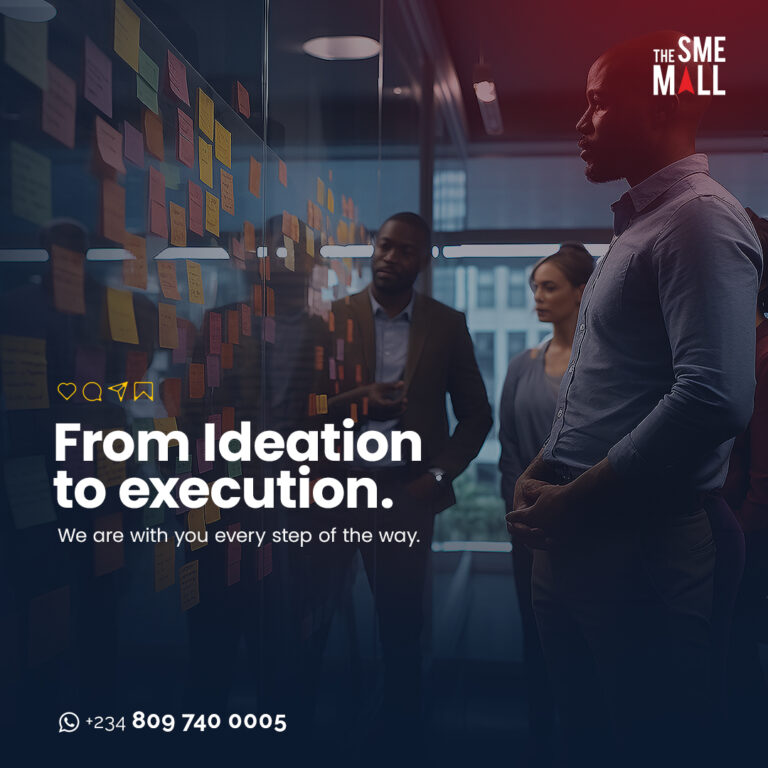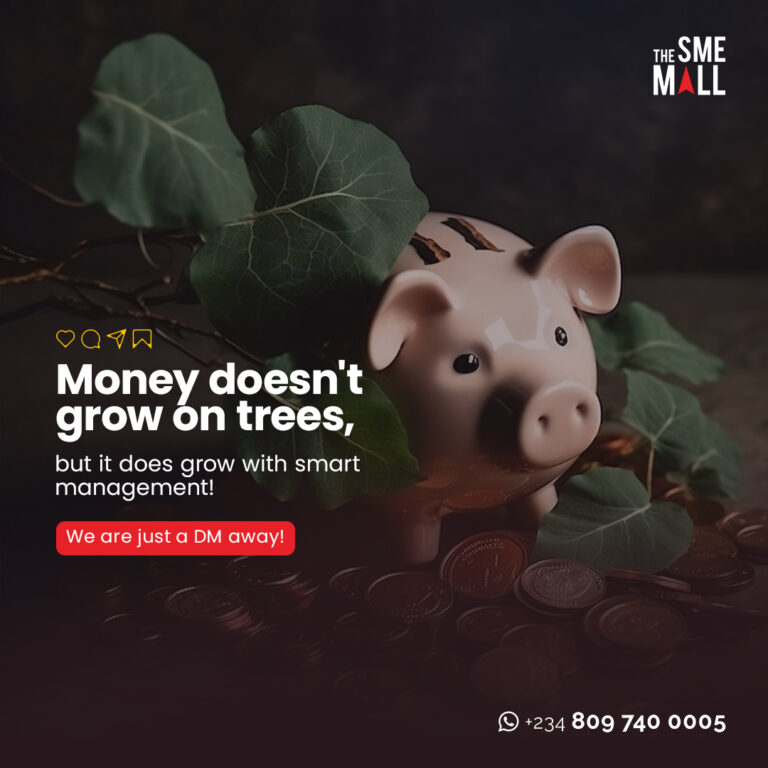How to Secure Funding for Business Startup in Nigeria
How to Secure Funding for Business Startup in Nigeria
How to Secure Funding for Business Startup in Nigeria
How to Secure Funding for Business Startup in Nigeria
Starting a business in Nigeria without adequate funding is like trying to build a house without cement. You might have brilliant ideas, market knowledge, and determination, but without capital, your startup dreams remain just that – dreams. The harsh reality is that most Nigerian entrepreneurs give up not because their ideas lack merit, but because they can’t secure the funding needed to bring those ideas to life.
The funding landscape in Nigeria has transformed dramatically. While traditional banks still demand collateral that most entrepreneurs don’t have, new funding sources have emerged. Government programs offer free grants to start a business, angel investors are actively seeking promising startups, and alternative funding methods provide creative solutions for determined entrepreneurs.
The key is knowing where to look and how to position your startup for success. This isn’t about luck or connections – it’s about understanding the funding ecosystem and following proven strategies that work specifically in the Nigerian market.
The Reality of Startup Funding in Nigeria
Understanding how to secure funding for a business in Nigeria starts with recognizing that the ecosystem has fundamentally changed. The Nigeria Startup Act 2022 created new opportunities, international investors are paying attention to African markets, and government programs are expanding their reach.
The challenge isn’t lack of available funding – it’s lack of information about how to access it. Most entrepreneurs waste months applying for the wrong types of funding or approaching investors without proper preparation. Success comes from matching your startup stage, industry, and funding needs with the right sources.
Nigerian startups raised over $1.2 billion in 2023, proving that funding exists for businesses that understand how to secure funding for a new business through systematic approaches. The key is positioning your startup as an investment opportunity rather than a charity case.
Funding stages determine which sources are appropriate for your situation. Pre-seed funding comes from personal savings, family, and friends. Seed funding involves angel investors and small grants. Series A and beyond require venture capital firms and institutional investors.
Industry focus affects funding availability significantly. Fintech, agritech, healthtech, and edtech attract more investor interest than traditional retail or service businesses. However, every industry has funding sources if you know where to look.
Geographic advantages play a role in funding access. Lagos startups have more opportunities, but government programs specifically target businesses in other states to promote economic development nationwide.
Government Funding Programs: Free Money That Actually Exists
Learning how to get funding for startup from government sources provides the best starting point because these programs offer free grants to start a business without requiring repayment or equity surrender.
Bank of Industry (BOI) operates multiple startup funding programs including the Youth Entrepreneurship Support Programme and the Graduate Entrepreneurship Fund.
Website: https://www.boi.ng/
Focus: Manufacturing, technology, agriculture
Grant Range: ₦500,000 – ₦10 million
Central Bank of Nigeria (CBN) Intervention Funds provide low-interest loans and grants through participating banks for startups in priority sectors.
Website: https://www.cbn.gov.ng/
Access: Through commercial banks
Focus: Agriculture, manufacturing, creative industries
Nigeria Youth Investment Fund (NYIF) specifically targets young entrepreneurs with both loans and grants for innovative business ideas.
Grant Range: ₦250,000 – ₦3 million
Target: Entrepreneurs aged 18-35
SMEDAN Conditional Grant Scheme offers direct grants to micro and small enterprises with growth potential.
Website: https://smedan.gov.ng/our-programs/cgs/
Grant Amount: ₦50,000 – ₦1 million
Coverage: Nationwide
Lagos State Employment Trust Fund (LSETF) runs comprehensive programs for Lagos-based startups.
Website: https://lsetf.ng/
Grant Range: ₦500,000 – ₦5 million
Programs: Various sector-specific initiatives
The key to accessing government funding is understanding that these aren’t handouts – they’re investments in economic development. Your application must demonstrate job creation potential and contribution to national development goals.
Private Investors: Angels, VCs, and Strategic Partners
Understanding how do small startups get funding from private investors requires recognizing that these investors seek businesses with high growth potential and scalable business models.
Angel Investors provide early-stage funding, usually ₦5 million to ₦50 million, in exchange for equity stakes. They often bring industry expertise and business networks beyond just money.
Lagos Angel Network (LAN) connects startups with high-net-worth individuals interested in supporting entrepreneurship.
Focus: Tech-enabled businesses
Typical Investment: ₦10 million – ₦100 million
Venture Capital Firms invest larger amounts, typically ₦100 million to ₦2 billion, in exchange for significant equity stakes and often board seats.
Ingressive Capital focuses on African tech-enabled startups with global potential.
Website: https://ingressive.co/
Investment Range: Up to $400,000
Equity: Around 10%
Future Africa invests in mission-driven startups solving African problems.
Website: https://future.africa/
Focus: Fintech, healthtech, edtech
Investment: $25,000 – $250,000
TLcom Capital targets growth-stage African startups.
Focus: Fintech, logistics, food security
Investment: $500,000 – $15 million
Strategic Investors include established companies investing in startups that complement their business strategies. Banks invest in fintech, telecom companies fund edtech, and manufacturers support supply chain innovations.
Alternative Funding Sources for Nigerian Entrepreneurs
Learning how to source funds for business beyond traditional options opens up creative funding possibilities that many entrepreneurs overlook.
Crowdfunding platforms allow you to raise money from many small contributors. While international platforms like Kickstarter work for some Nigerian businesses, local understanding of market dynamics often produces better results.
Revenue-based financing provides funding in exchange for a percentage of future revenue rather than equity. This works well for businesses with predictable revenue streams.
Equipment financing helps startups acquire necessary equipment without large upfront payments. Many suppliers offer financing arrangements or lease-to-own programs.
Invoice factoring provides immediate cash flow by selling your unpaid invoices to factoring companies at a discount. This works for B2B businesses with reliable customers.
Supplier credit involves negotiating extended payment terms with suppliers, effectively providing free short-term financing for inventory and materials.
Customer prepayments can fund operations when customers pay in advance for products or services. This works particularly well for custom manufacturing or consulting services.
Business plan competitions offer substantial prizes for winning business ideas. Many competitions provide ₦1 million to ₦10 million plus mentorship and networking opportunities.
Your Business Plan: The Key That Unlocks Every Door
Understanding how does a business plan secure funding reveals why this document determines success or failure in funding applications. Your business plan isn’t just a document – it’s your sales pitch, credibility statement, and roadmap all combined.
Executive summary must capture attention immediately because investors often decide whether to continue reading based on the first page. Clearly state your business concept, market opportunity, competitive advantage, and funding requirements.
Market analysis demonstrates that you understand your customers, competition, and industry dynamics. Include specific data about market size, growth rates, and customer segments you plan to serve.
Financial projections show how you’ll use funding to generate returns. Include realistic revenue forecasts, detailed expense budgets, and clear explanations of your assumptions.
Management team section proves you have the skills and experience needed to execute your business plan successfully. Highlight relevant experience, achievements, and complementary skill sets.
Funding requirements specify exactly how much money you need and how you’ll use it. Break down funding into categories like equipment, inventory, marketing, and working capital.
Risk analysis acknowledges potential challenges and explains how you’ll address them. This shows investors that you’ve thought critically about your business and have contingency plans.
Step-by-Step Guide to Securing Your First Funding
How to raise funds for business start-up requires systematic approaches rather than random applications to every possible funding source.
Step 1: Determine your funding needs by creating detailed budgets covering equipment, inventory, marketing, operations, and working capital for at least 12 months.
Step 2: Choose appropriate funding sources based on your industry, business stage, and funding amount. Don’t apply for VC funding if you need ₦2 million, and don’t approach angels if you need ₦200 million.
Step 3: Prepare your documentation including business plans, financial projections, legal documents, and presentations tailored to each funding source’s requirements.
Step 4: Build relationships before asking for money. Attend networking events, participate in startup communities, and engage with potential investors on social media.
Step 5: Perfect your pitch by practicing your presentation until you can deliver it confidently and answer questions expertly. Most funding decisions are made during face-to-face presentations.
Step 6: Apply strategically rather than mass-applying to every opportunity. Customize each application to demonstrate why your startup fits that specific investor’s criteria.
Step 7: Follow up professionally and maintain relationships even if initial applications are rejected. Many successful funding rounds happen after multiple interactions with the same investors.
Common Funding Mistakes That Kill Nigerian Startups
Understanding how to secure startup funding includes avoiding critical mistakes that immediately disqualify promising businesses from consideration.
Unrealistic valuations kill negotiations before they start. Research comparable businesses and be prepared to justify your valuation with solid financial data and growth projections.
Poor financial projections signal lack of business understanding. Avoid hockey stick growth curves without explanation and ensure your numbers add up logically.
Weak market research suggests you don’t understand your customers or competition. Investors want to see evidence that you’ve validated market demand for your solution.
No clear competitive advantage makes your business appear easily replaceable. Clearly articulate why customers will choose you over alternatives.
Inadequate management team raises questions about execution capability. If you lack critical skills, acknowledge gaps and explain how you’ll address them.
Unclear funding use makes investors question your planning abilities. Specifically explain how funding will accelerate growth and generate returns.
No exit strategy concerns investors who need eventual returns on their investments. Explain potential acquisition targets or IPO possibilities.
What Is the Best Source of Funding a Start-up?
The best funding source depends entirely on your specific situation, but successful entrepreneurs typically combine multiple sources rather than relying on single funding types.
Bootstrap first using personal savings, revenue from early sales, and creative cost management to prove concept viability before seeking external funding.
Start with grants because free money doesn’t require repayment or equity surrender. Government grants provide excellent starting points for many businesses.
Add angel investment when you need larger amounts and can benefit from investor expertise and networks beyond just money.
Scale with venture capital when you’ve proven market traction and need significant funding for rapid expansion.
Supplement with alternative funding throughout your growth journey to maintain cash flow and bridge funding gaps.
How The SME Mall Accelerates Your Funding Success
Securing startup funding requires professional business planning, investor preparation, and application management that most entrepreneurs lack time and expertise to handle while building their businesses.
Our Business Advisory services help you identify the most appropriate funding sources for your specific situation, develop compelling business plans and financial projections, and prepare presentations that capture investor attention.
Our Legal Services ensure your business structure, documentation, and compliance meet investor requirements while protecting your interests throughout funding negotiations.
Turn Your Startup Dreams Into Funded Reality
How do I raise funding for my startup? The answer isn’t luck or connections – it’s systematic preparation combined with persistent execution. Nigerian entrepreneurs who secure funding follow proven processes rather than hoping for miraculous discoveries.
The funding is available. The opportunities exist. The question is whether you’re prepared to pursue them with the professionalism and persistence that investors demand.
Start building your funding strategy today rather than waiting until you desperately need money. Successful funding takes time, preparation, and often multiple attempts before achieving success.
Ready to secure the funding your startup needs to succeed? Contact The SME Mall today to develop a comprehensive funding strategy that positions your business for investment success.



